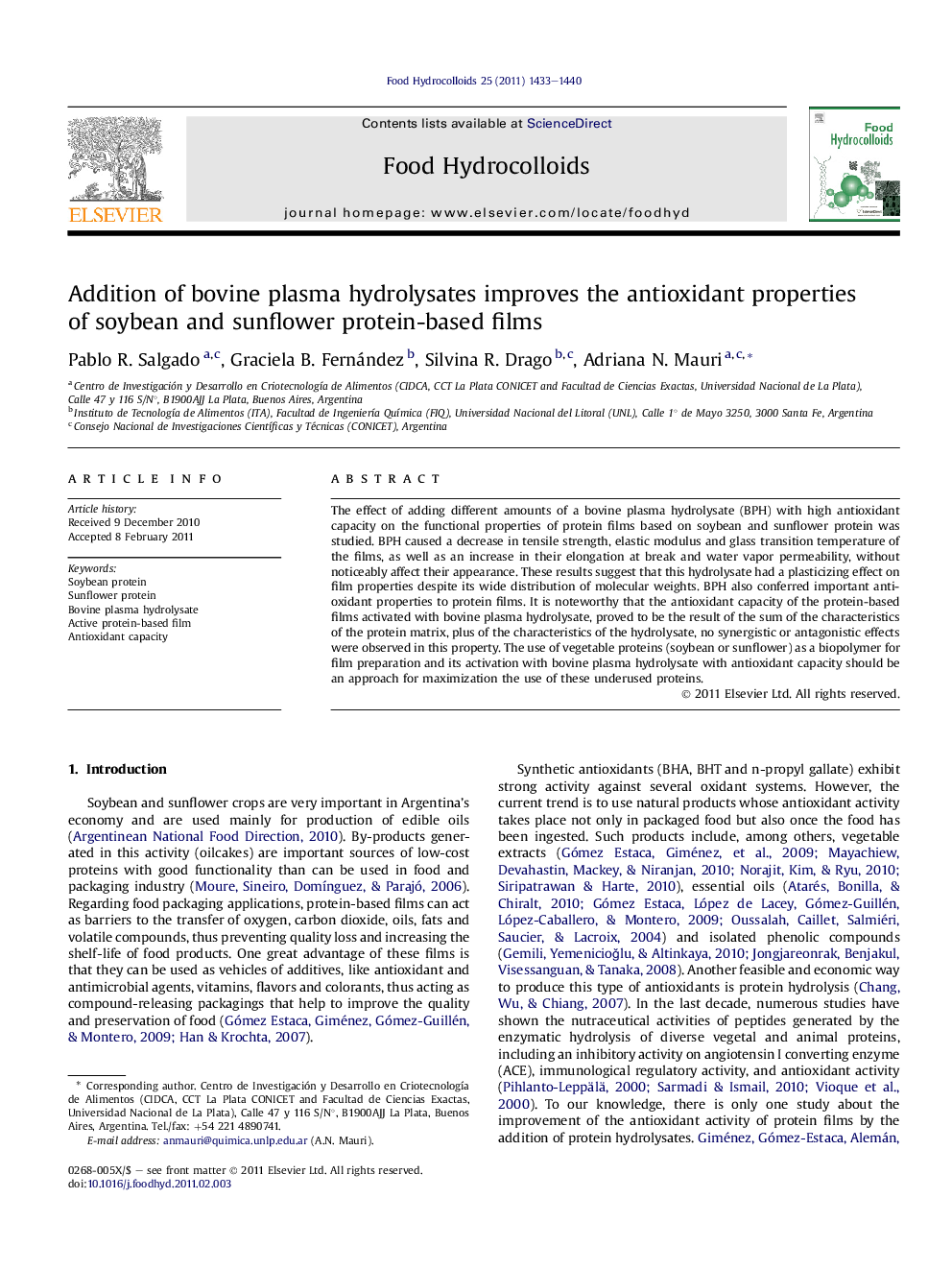| Article ID | Journal | Published Year | Pages | File Type |
|---|---|---|---|---|
| 604541 | Food Hydrocolloids | 2011 | 8 Pages |
The effect of adding different amounts of a bovine plasma hydrolysate (BPH) with high antioxidant capacity on the functional properties of protein films based on soybean and sunflower protein was studied. BPH caused a decrease in tensile strength, elastic modulus and glass transition temperature of the films, as well as an increase in their elongation at break and water vapor permeability, without noticeably affect their appearance. These results suggest that this hydrolysate had a plasticizing effect on film properties despite its wide distribution of molecular weights. BPH also conferred important antioxidant properties to protein films. It is noteworthy that the antioxidant capacity of the protein-based films activated with bovine plasma hydrolysate, proved to be the result of the sum of the characteristics of the protein matrix, plus of the characteristics of the hydrolysate, no synergistic or antagonistic effects were observed in this property. The use of vegetable proteins (soybean or sunflower) as a biopolymer for film preparation and its activation with bovine plasma hydrolysate with antioxidant capacity should be an approach for maximization the use of these underused proteins.
Graphical abstractAntioxidant capacity (ABTS+ scavenging activity) of films prepared from SPI (■) or SFPI () with different concentrations of BPH (0, 10, 20 and 40 g BPH/100 g protein isolate).Figure optionsDownload full-size imageDownload as PowerPoint slideFigure optionsDownload full-size imageDownload as PowerPoint slide
